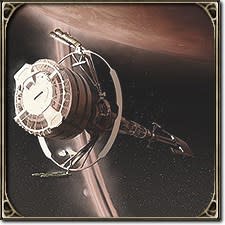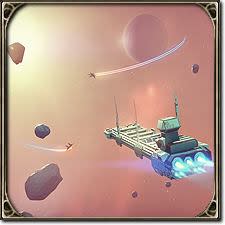MMO Mechanics: Predicting the future of MMO game mechanics
I've been thinking heavily about the future since our parent network's budget cuts were announced, so I decided it would be very apt to pen my last edition of MMO Mechanics with that same train of thought. The industry has changed remarkably over the last decade with trends like the free-to-play revolution and innovations in everything from loot distribution to quest design. In my previous article, I looked at the trend toward using procedural generation and what that might mean for the future of MMOs.
In this article, I'd like to give a better overview of where I think the genre is headed in the coming years and what that means for game mechanics. My predictions are based on market patterns and technology developments, including the great indie revolution, the effects of declining subscriptions on investment, and upcoming virtual reality technology. Pie-in-the-sky fantasy or an accurate predictor of things to come? Let me know what you think.
Virtual reality
Virtual reality may feel like something from an '80s movie, but the past few years have seen it finally gain market acceptance thanks to devices such as the crowdfunded VR headset Oculus Rift. That success has spurred further innovations such as the Virtuix Omni, a 3-D treadmill that allows gamers to physically run around inside their favourite virtual worlds without inadvertently picking a fight with an unexpecting wall. As more and more games start to support these next-generation peripherals, developers will start designing with them in mind and the effect will filter into the MMO genre. We'll see a move away from third-person viewpoints and into a more immersive first-person perspective. Elements that look bad up close will get more attention, and extra effort will be put into making MMO worlds more panoramic, which could lead to a revolution in exploration-based game mechanics.
Games might also implement control changes depending on weather and topography to further enhance the immersive experience; Heavy wind or steep terrain could slow you down, and visibility through rain and snow could become important for navigation and line-of-sight for spells. Blander mechanics like the "Kill 10 Rats" quest type will probably give way to more immersive quest designs that could make use of voice recognition and gestural commands. I would personally love to play an MMO in which I'd have to actually enact the somatic components of spells, raise my shield just as a dragon's breath descends, or disarm an enemy ship with only a second to spare. While we're not quite at the point where I can just think "walk forward" and my characters does it, that's definitely the direction that technology is headed.

Bigger does mean better
It's no secret that the online space is headed for a sandbox revolution in the coming years, with games such as EverQuest Next and Elite: Dangerous leading the way. Falling themepark subscription numbers have spurred a generation of new sandbox games, a trend that will continue for the foreseeable future. Over the next few years, we'll see MMO worlds grow in both size and complexity as a result, with less emphasis on content made by developers and more on player-generated and emergent content. What that means for game mechanics is that we'll probably see a lot more MMOs release tools that let players create their own quests. Tools such as these have been championed by developers Cryptic Studios and Paragon Studios, proving popular in the now-defunct MMO City of Heroes and more recently in Cryptic's Star Trek Online and Neverwinter.
The rise of sandboxes will lead to game economies becoming increasingly realistic, and more games will focus on the emergent gameplay between players rather than raids and quests. More MMOs will discover the high barrier-to-exit players experience when embroiled in territorial conflicts, forging friendships and political alliances in-game, and running their own business enterprises in semi-realistic economies. Sci-fi MMO EVE Online has reportedly grown year-on-year for the past ten years due in part to its focus on supporting the actions of players in this manner, and it's sure to see some serious competition in the years to come.

Bridging the gap between indie and triple-A
The past few years have shown that throwing a triple-A
budget at an MMO is a risky gamble. Without using a well-established IP like Guild Wars or Star Wars to negate some of that risk, throwing tens of millions of dollars at an MMO may not pay off. With MMO goliath World of Warcraft's subscriptions declining, investors will be less inclined to put in exorbitant amounts of money for new and unproven MMOs. In terms of gameplay, I think this means that we'll see more medium-scale MMO projects coming out with variations on tried-and-true MMO gameplay and common-sense fixes to age-old problems in our beloved genre.
Meanwhile, indie developers such as Grinding Gear Games with Path of Exile and Hello Games with upcoming sandbox No Man's Sky have shown bags full of potential and highlight just how far a small budget can stretch. This is due in part to the advent of crowdfunding, which has made some impressive-looking indie projects possible without investors or publishers getting involved.
The freedom indies have invariably leads to innovation since investors almost always need to see some concrete statistical proof of concept, methodology, and ability in order to give development the green light. Profit gained through the use of similar methods or concepts is the most compelling way to convince someone that an idea is worthwhile, so many larger developers have to stick to the known. I think we'll see a lot of completely unexpected ideas coming out of indie studios in the years ahead, and that'll be where most of the big innovative leaps will happen.
To conclude MMO Mechanics, I wanted to emphasise that although mechanics may seem like an all-too fundamental part of what defines a genre, part of what makes gaming so exciting is that technological advances and a heavy dose of good old-fashioned ingenuity compels even the core mechanics of MMOs ever forward. What seems critical now may be something we'll look back on in the future with the same rose-tinted spectacles with which we view beloved yet now-defunct older mechanics. The future of MMOs is certainly bright, with so many potential gameplay innovations just on the horizon, and I for one am certainly ready to wander off into the sunset in pursuit of the next big thing.

MMOs are composed of many moving parts, but Massively's Tina Lauro is willing to risk industrial injury so that you can enjoy her mechanical musings. Her column, MMO Mechanics, explores the various workings behind our beloved MMOs every week.




